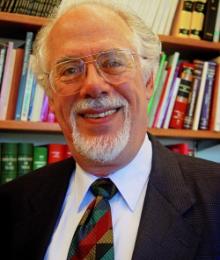Legal Methods
Course Information
- Course Number
- L6113
- Curriculum Level
- Foundation
- Type
- Lecture
Section 004 Information
Instructor
 Peter L. Strauss
Betts Professor Emeritus of Law
Peter L. Strauss
Betts Professor Emeritus of Law
Section Description
In general, I have designed my section of Legal Methods to introduce you, as a beginning J.D. degree student, both to the processes and the skills you will need for the professional use of case law and (to a limited extent) statutes, and to the development of American legal institutions. Our course starts with materials from the first decades of American history. This was a time marked by relatively simple common law litigation and institutions, in a country that had to fashion its law for itself, and that did so largely through its courts. As America industrialized, the styles of judging changed, as did the law, the institutions most responsible for developing it, and the considerations legal analysts viewed as most basic to decision.
For the most part, our materials explore the developing law on questions of liability for defective products, questions which arise in the borderland between the first-year courses in Contracts and Torts. The law of product liability developed almost wholly through common law decisions, so that following the arc of its development not only will help you develop skills of case reading and use, but will also help understand the ways in which judicially developed legal doctrine and public institutions can change in response to social changes. From the simplest of judicially resolved disputes about faulty items made by artisans, we will reach legal issues concerning liability for defectively manufactured, designed and advertised products of the industrial age, and end with recent decisions addressing responsibility for the changing climate, and the institutions that might be capable of dealing with its impact. In proceeding from the early 19th Century to the greater complexities of the current day, we explore the sources, forms, and development of law, the analysis and synthesis of judicial precedents, and the uses of legal reasoning. Because today's lawyer must often deal with transactions governed by the civil law (the dominant legal system in much of the rest of the world), we glance at its development as well. By the time the course ends, then, you will have acquired skills essential to your work in other law school classes, an appreciation for the changing styles of legal analysis that American jurists have brought to their work over time, and an awareness of current disputes about the modern role of judges.
Other goals I have are to encourage you to work collaboratively in a comfortable atmosphere for learning, and to offer chances for small-scale informal interchange. If you care to sign up with seven others for a noon hour lunch on the days we meet, and the University's rules governing our interactions in the wake of the pandemic then permit, that will give me a chance to break bread with many of you.
For each day, most course materials for the following day will be excerpts from Strauss, Legal Methods: Understanding and Using Cases and Statutes (3d Ed. 2014) that will appear on the course website at the conclusion of the preceding day's afternoon class. Proceeding in this way will spare you having to buy an expensive book we will have time to consider only a fraction of, as well as help us to stay in "the present moment" as we advance through the law's gradual development to accommodate the remarkable changes that have occurred over time. You should buy Gilmore, The Ages of American Law (2d ed., P. Bobbitt editor). a short and insightful history of the developments/changes we will be considering. And I strongly recommend that you buy Judging Statutes, a short book written by the late Judge Robert Katzmann of the US Court of Appeals for the Second Circuit, that in my judgment is the best available brief exposition of statutory interpretation and the current controversies about that important skill.
- School Year & Semester
- Fall 2021
- Dates
- August 26 - September 3
- Location
- JGH 103
- Schedule
-
Class meets on
- Monday
- Tuesday
- Wednesday
- Thursday
- Friday
- Dates
- August 26 - September 3
- Location
- JGH 103
- Schedule
-
Class meets on
- Monday
- Tuesday
- Wednesday
- Thursday
- Friday
- Points
- 1
- Method of Evaluation
- Paper
- J.D Writing Credit?
- No
Learning Outcomes
- Primary
-
- Acquiring an understanding of and/or facility in doctrinal analysis, including close reading of cases and precedents, and application of existing caselaw to new facts; and
- Obtaining an initial historical overview of the development of American law, legal institutions, and legal techniques, and the controversies concerning them; and
- Learning essential law student techniques, such as case briefing and synthesis, examination preparation, and exam taking.
- Secondary
-
- Comfort in contributing to oral classroom discussion
- appreciation for the benefits of collaborative work in learning law
- acquiring habits of self-reflection about the impact of legal education on oneself
Course Limitations
- Instructor Pre-requisites
- None
- Instructor Co-Requisites
- None
- Recommended Courses
- None
- Other Limitations
- Course is limited to Columbia Law School 1L students


